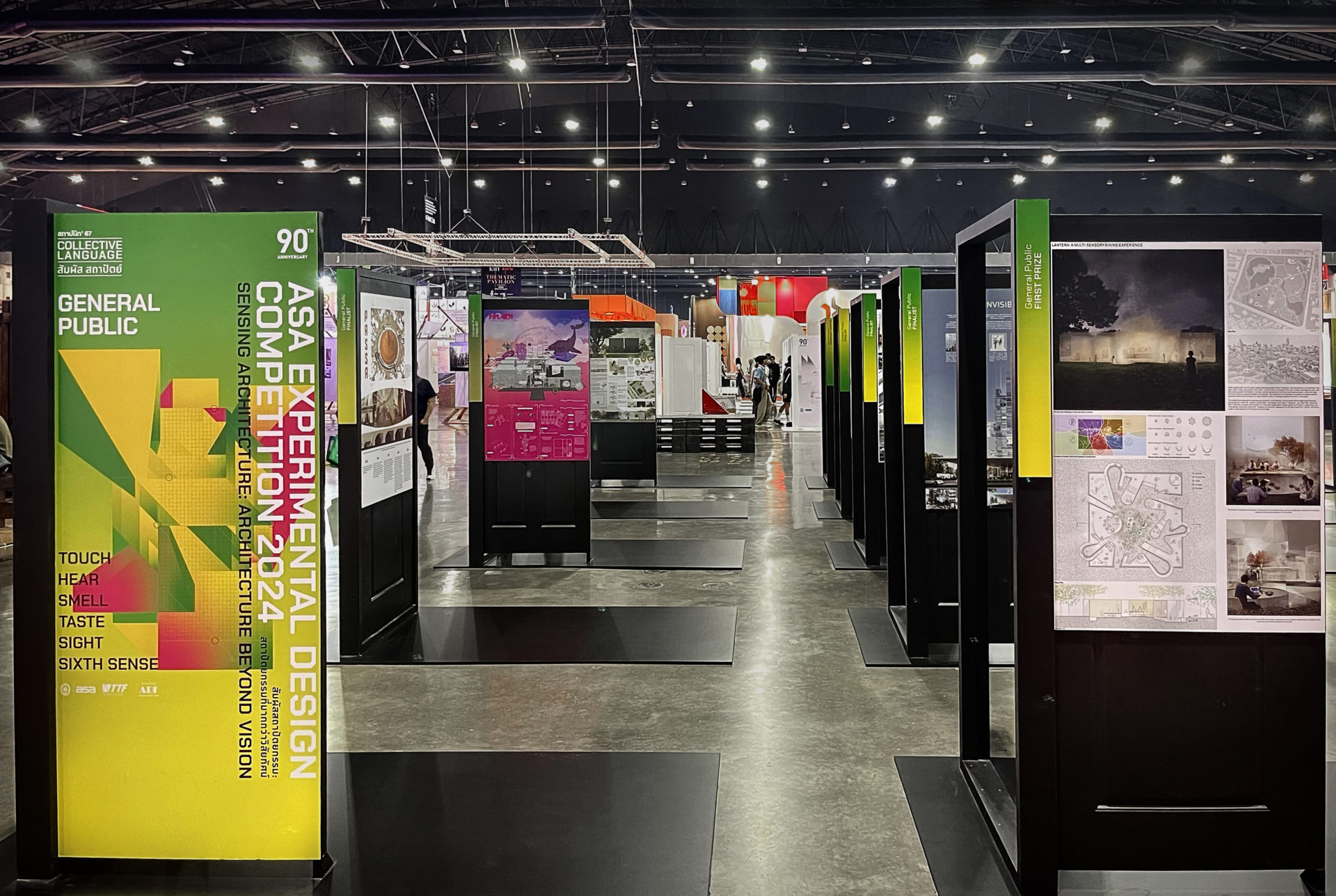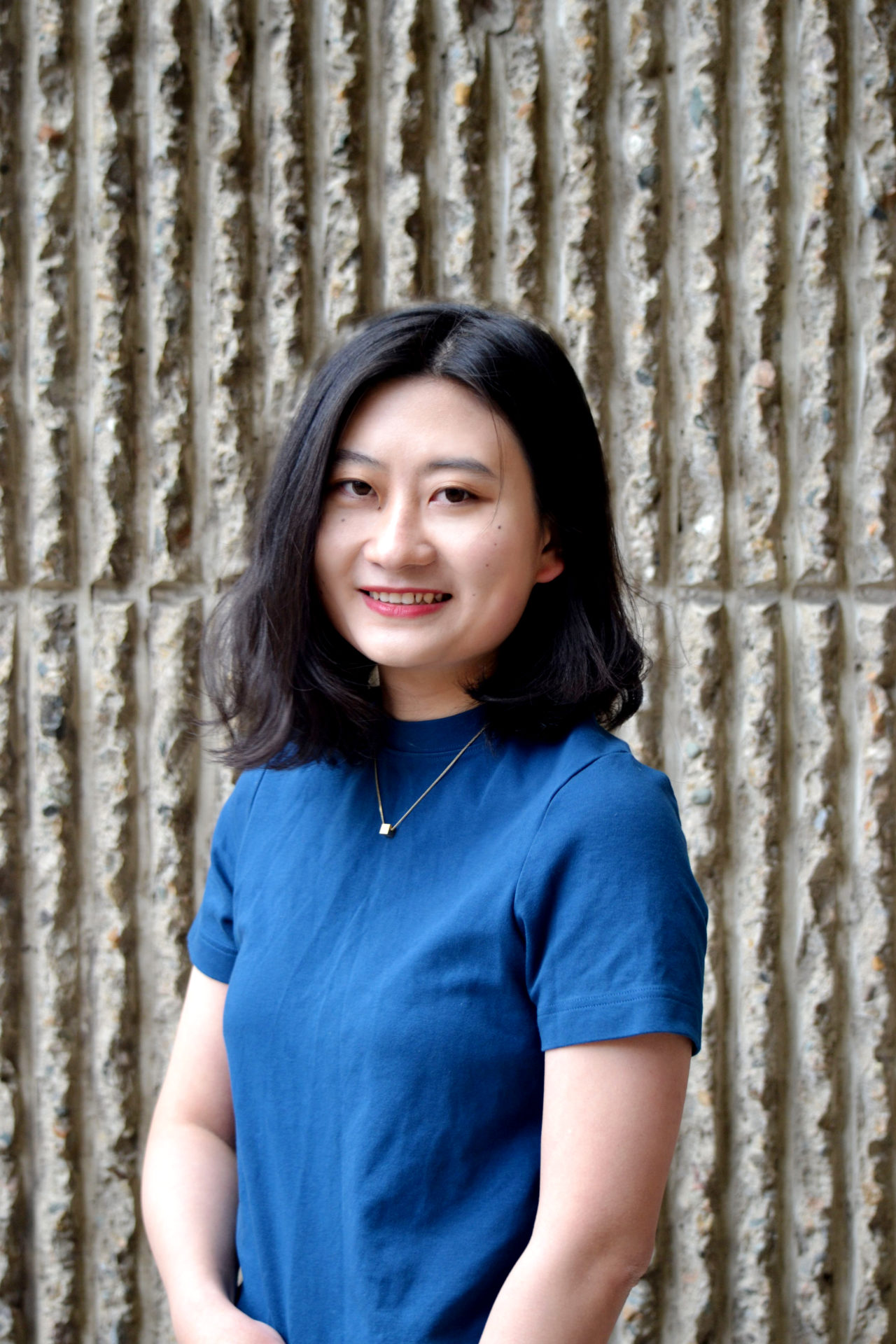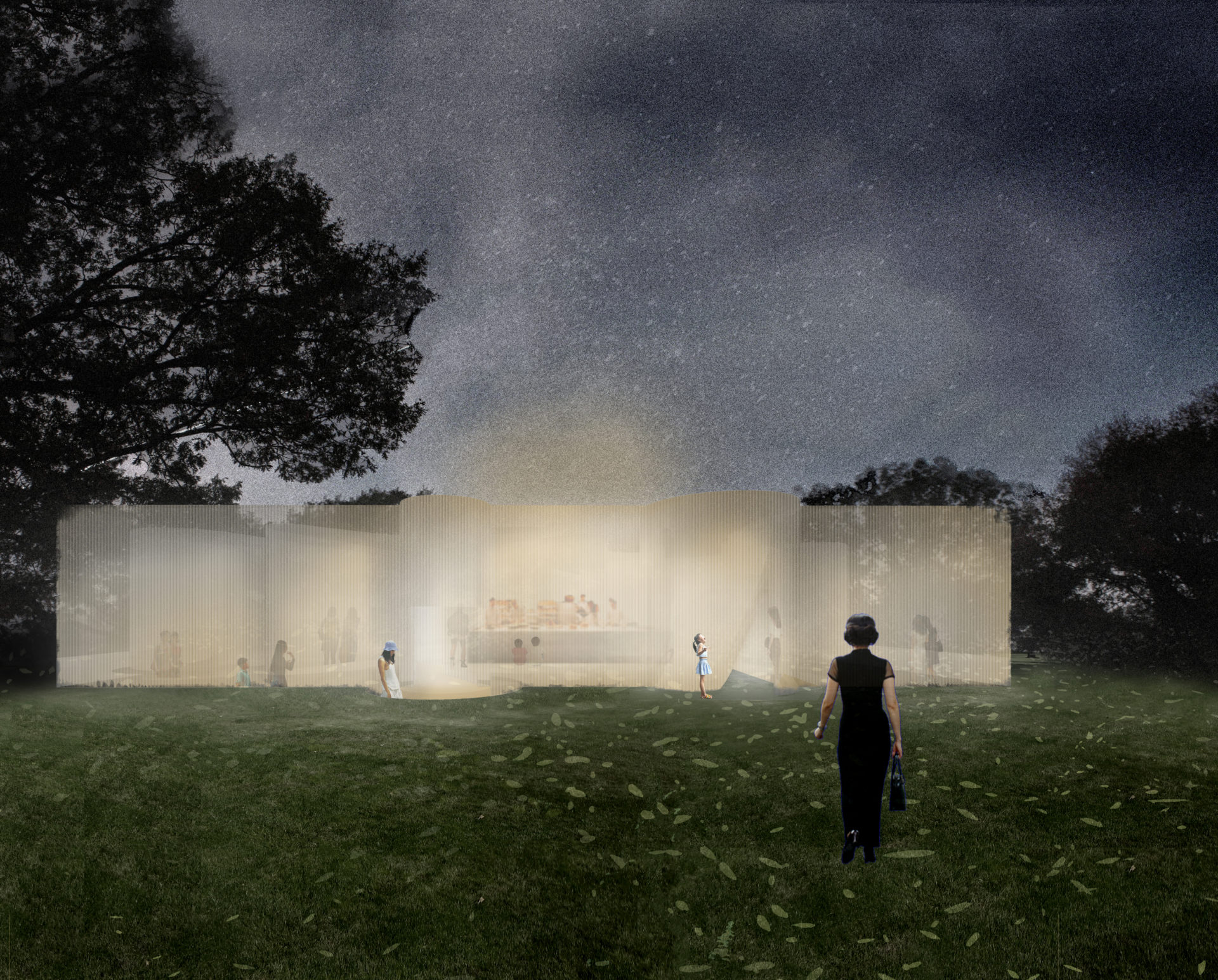
We love it when design is experimental–and not just fashion design. Boston-based architectural designer Shuang Chen won first prize at 2024’s ASA Experimental Design Competition, and we love to see a woman winning awards. This award aims to “connect people to architectural society,” and Chen uses street food in Bangkok as a starting point for her design.
She tells me: “The street food experience in Bangkok is multi-sensory: the light, smell, noise, and hustle in the crowd. It’s also a journey through spaces and settings that immerse you in the city’s vibrant culture. Bangkok street food vendors usually set up their stalls or portable carts in the night market, arranged like a maze, creating a labyrinthine experience.”
This labyrinth puts the spotlight on the stars of the evening. “The focal point of a street food night market is always the cook, with the cooking stand illuminated in the dark like a lantern, attracting attention with the brightness and scent,” explains Chen. “The lighting, the overhead wires, and the noise from the crowd as a natural background masking all add to the sensory experience, creating a vibrant, chaotic, and captivating atmosphere. The interaction of all senses composes the mystery behind people’s comfort and intimacy in a night market, which introduces a sense of privacy in the public.”
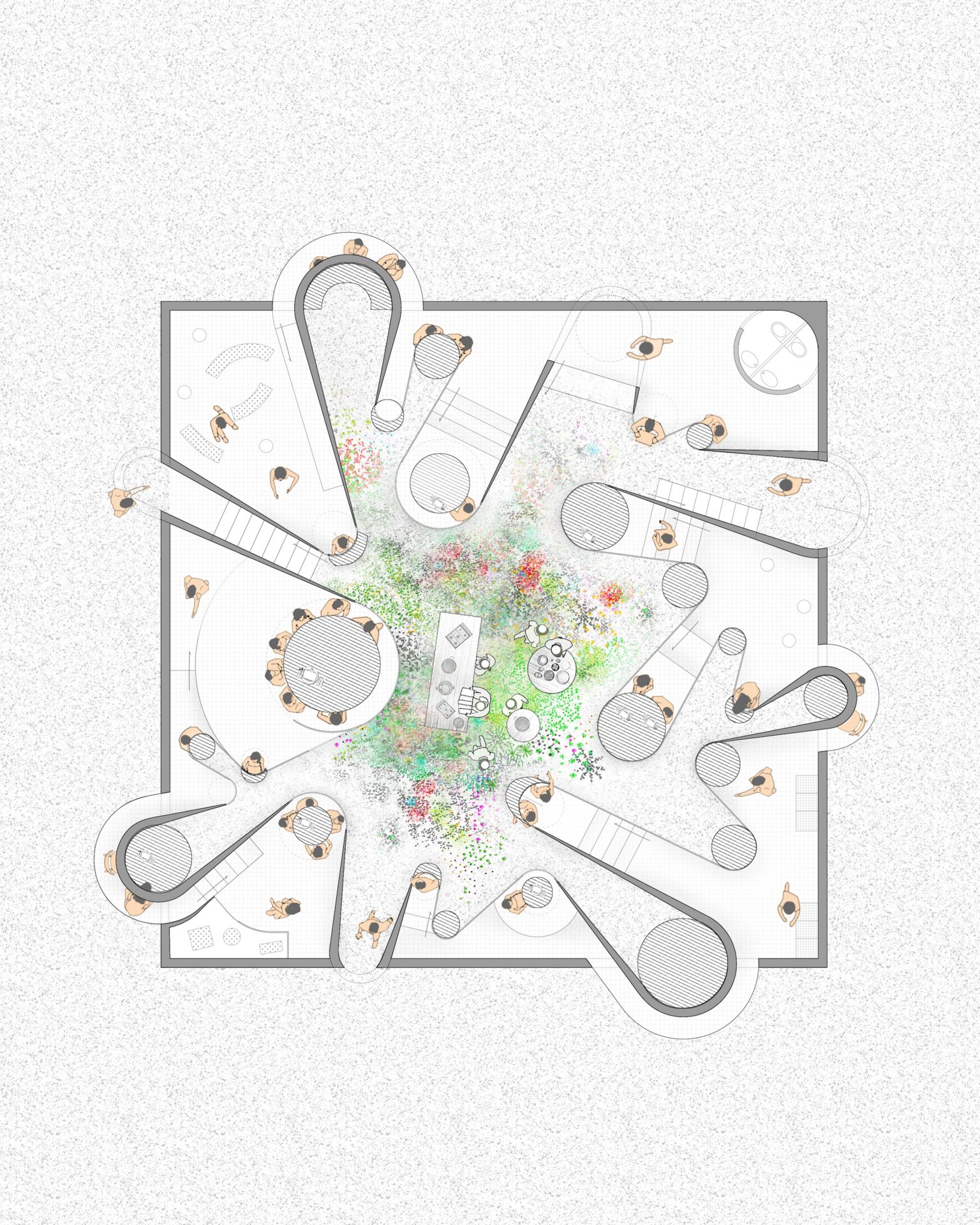
Chen chose Lumpini Park, one of Bangkok’s most famous parks, as a site for her masterpiece. Lumpini Park is the first public park built in Thailand. She explains what it’s like walking through this park as a visitor: “It is a spacious oasis in Bangkok’s bustling city center. Walking through Lumpini Park feels like a brief escape from the bustling city, yet still within the vibrant center of Bangkok. The park offers a variety of landscapes and activity areas, such as jogging paths, open lawns, and ponds, fostering diverse social interactions and catering to different needs.”
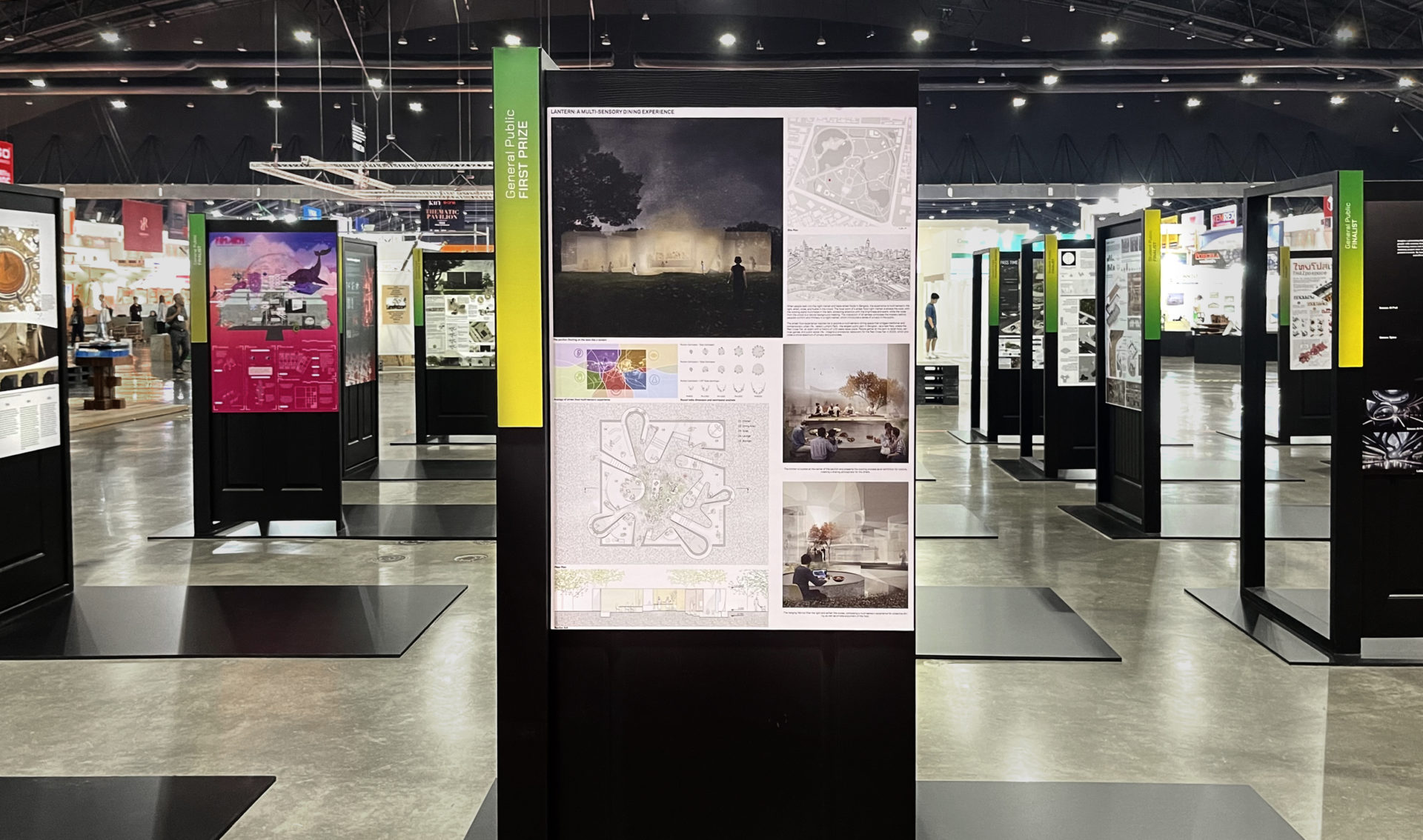
Lumpini Park is named after the birthplace of Buddha, and it has cultural significance as the city’s recreational center and a place for cultural events, community gatherings, and celebrations, including The Red Cross Fair, which has been held at Lumpini Park for over a century. “People gather at the park to relish food, carnival games, and public social life,” said Chen. “The diversity and complexity of Lumpini Park make it a perfect test field for my design concept that focuses on providing a whole spectrum of privacy and publicness in spatial experience.”
If you haven’t visited this park in Bangkok, add it to your list – especially if you’re a late night foodie. Chen’s design supports the street food vendors in a way that highlights their work, and caters to the flow of traffic. “I was inspired by Bangkok’s night market’s multi-sensory street food experience, so I put the dining pavilion’s kitchen in the center,” she said.
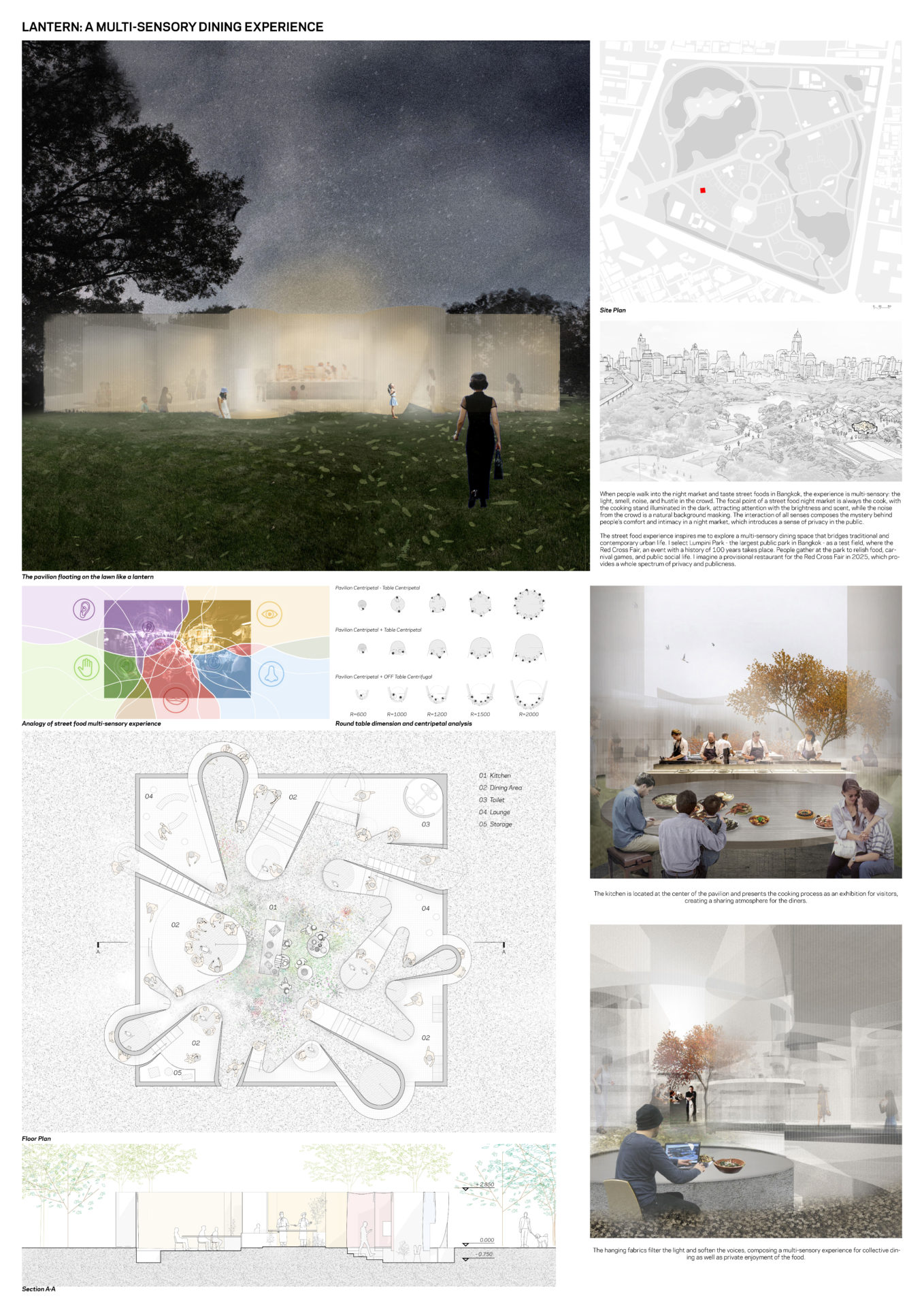
“It presents the cooking process as an exhibition for visitors. Unlike traditional dining experiences, food preparation becomes a visible and integral part of the dining experience in the design. The dining pavilion inherits the sharing spirit of the street food experience with an open layout and translucent materials. My design took a step forward and allowed a private enjoyment of food within this sharing atmosphere. With various seating arrangements surrounding the central kitchen, diners can enjoy intimacy and privacy in a public setting, showcasing an exemplary collective urban space in Bangkok.”
Links
https://architectexpo.com/2024/en/about-the-expo/
